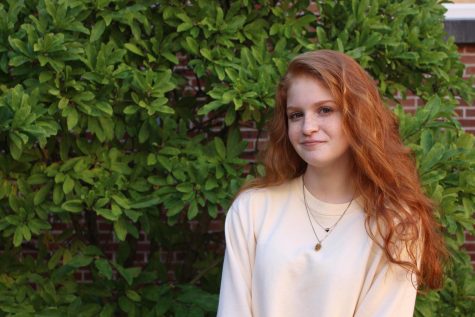Mental Health: What can Susky Do to Help?
September 11, 2017
Mental health issues at Susky are taken very seriously by students, teachers, counselors and even administration. There are many programs available for students when it comes to mental health, but one of the most commonly known is Aevidum.
Aevidum mostly focuses on mental health, advocating for people with mental health problems and informing students about mental health.
One of the school’s guidance counselors, Matthew Shervington, is aware of the societal tension surrounding mental health and suicide.
“There is this stigma, that if we talk about mental health, if we talk about teenage suicide, it is going to result in mental illness and it is going to result in teenage suicide,” said Shervington.
Aevidum has helped to eliminate this stigma since Shervington has been working here and advising the program.
According to Shervington, sports and extracurricular activities soothe mental health diagnoses.
“Kids who participate in sports, studies show that students who participate in sports have better mental health than their peers who may not participate in any extracurricular,” said Shervington.
Shervington and Andrew Warren, a history teacher, have been working together to partner with Kennard-Dale and the sports teams to incorporate Aevidum and mental health.
Shervington wants to be able to give the announcers at sporting events mental health tips to let parents and people who attend these events hear different ideas they may not know. Students may not know who they should go to; they have the chance to talk to their counselors or a teacher if they feel they need assistance, but counselors and teachers are not therapists.
Shervington mentioned the heart box which is very important for students and their peers if they would like to send in a referral.
“Heart is a great program because it allows for the referral to outside services where students can see a therapist and end up getting to meet with a therapist weekly, or they can end up meeting with a psychiatrist they can maybe help and provide psychological medication if that is needed,” said Shervington.

Mental health needs to be maintained; otherwise, it can sometimes make your thoughts seem insane.
Many students who wish to talk to peers about their personal problems and issues with mental health are afraid that they would either tell another peer, teacher or counselor. Students should understand though that their peers only report them in order to keep them safe or if they do not know who else they should contact about these issues.
Every year, the teachers at Susky are trained in mental health awareness and suicide prevention. When students seem upset during class or just in general, the teachers are told not to push them because it could make the situation they are going through worse.
“What we convey to teachers is that, if that’s the situation definitely refer them down to the counselor. At which point, we have some tools and training that kind of allow us to pry deeper than a typical teacher would in hopes that the student would feel more open to speaking in a confidential setting,” said Shervington.
Mental health should be taken seriously, and Susquehannock High School and the Aevidum club are working together to make this possible.




